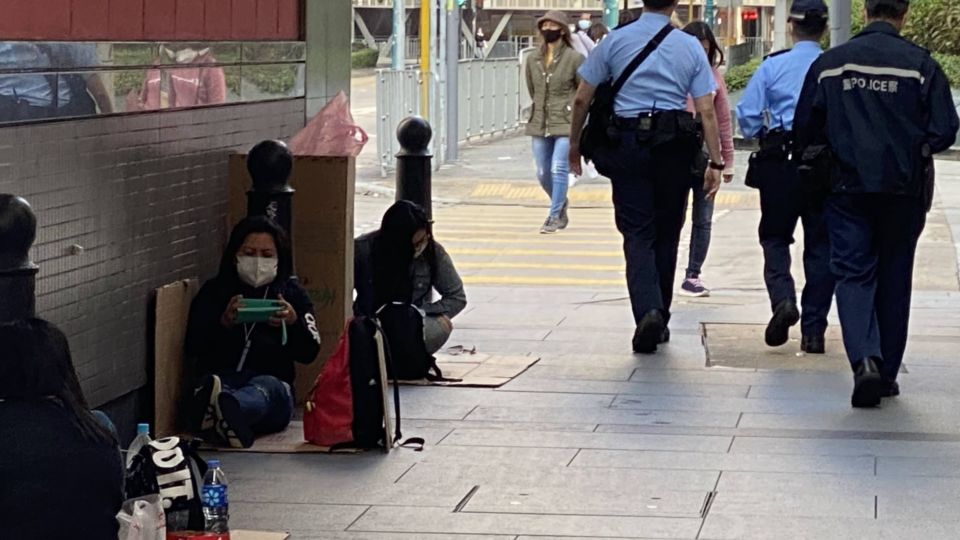On a regular Sunday afternoon, Chater Garden in Central and its vicinity are packed with Filipino domestic workers catching up with friends and relaxing on their only day off each week.
But on the Sunday that just passed, there were only a handful of them in the area.
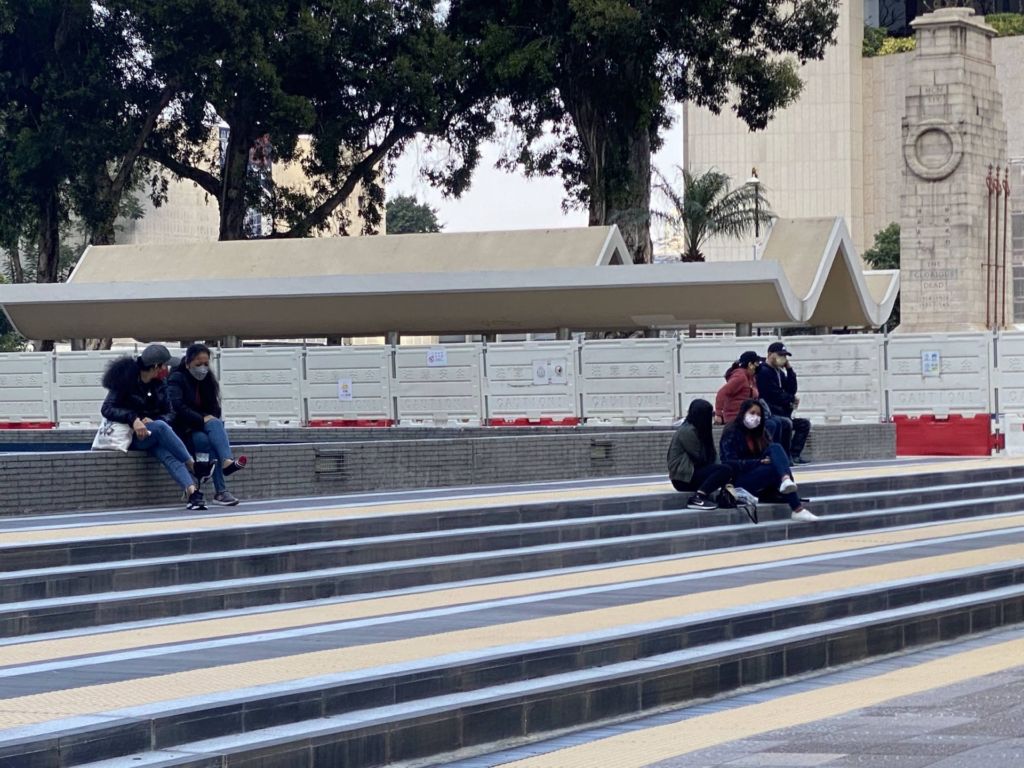
In their place were large stretches of Chater Road and an underground pedestrian walkway cordoned off by police.
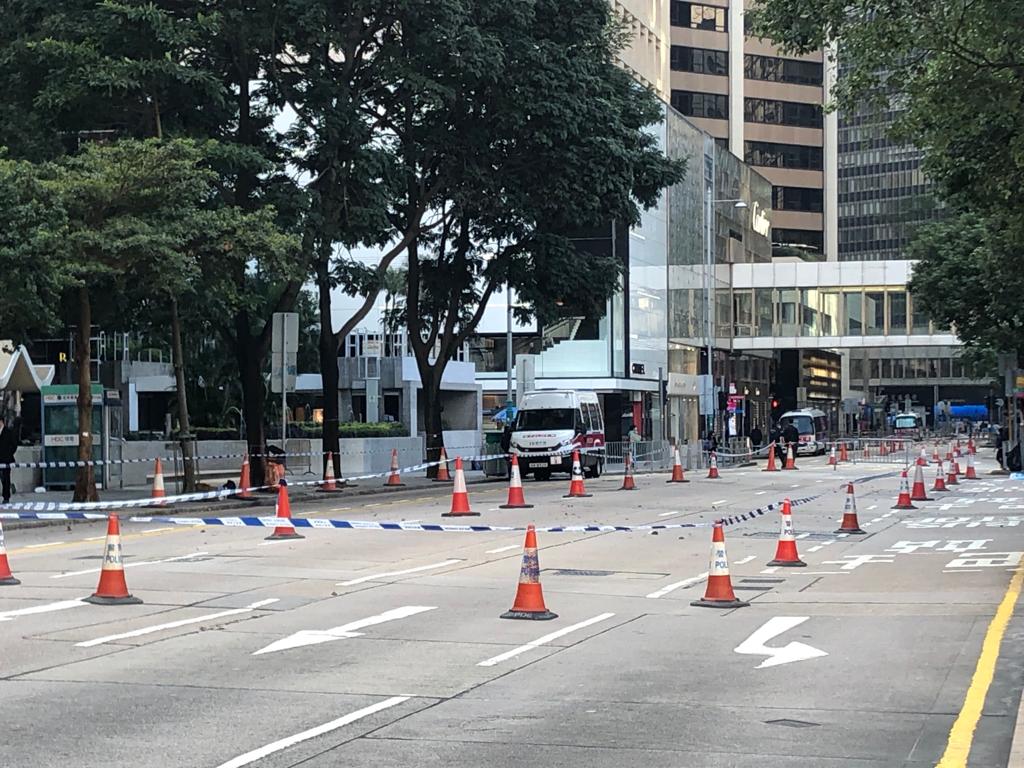

There were also over 30 police officers and staff from the Food and Environmental Hygiene Department and Labour Department patrolling the area, and warning domestic workers to maintain social distancing measures, keep their masks on and remove their tents.
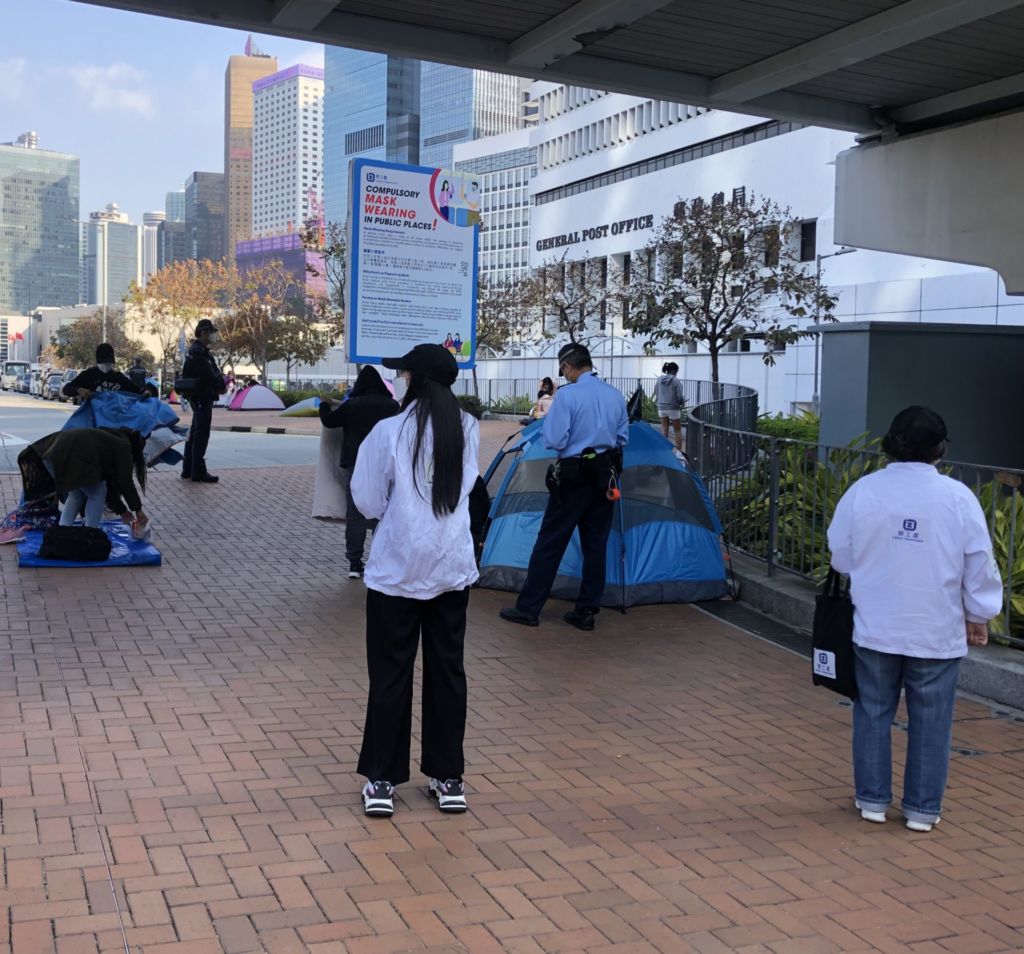
With the surge in COVID-19 cases in Hong Kong, authorities have urged people to stay home during this period.
Officers have also stepped up the enforcement of coronavirus protocols recently — which saw many foreign domestic workers handed fines of HK$5,000 (US$640), a hefty amount for a group who on average earn slightly more than HK$5,000 a month.
As a result, many domestic workers have been deterred from going out on their day off. Some have also been barred by their employers from doing so.
J, who lives with her employers in Central, was one of the few who made the short trip to the area outside the General Post Office to meet her friend.
The Filipino worker, who wished to be known by the initial of her first name, said while cases were rising rapidly in Hong Kong, she needed to go out to send money home.
“My mom — referring to her employer — hasn’t allowed me to come out on Sunday for two weeks already. So I asked her for permission to go out this week as I needed to send money home,” said J.
“Even though she said okay, she keeps calling and texting me to go home.”
While her employer compensated her for staying at home the past two weeks, J said she preferred going out as she needed time to “unwind”.
“We [domestic workers] also need to contact our family. When we are at home, we cannot talk and make noise because my mom is always here or the children are studying,” said J.
She added that since the recent COVID-19 outbreak, her employer has not allowed her to go out of the apartment from Mondays to Saturdays as well — not even for a trip to the market.
But her employers continued to go out during this period.
“We are also cautious and wear mask,” said J, adding she too did not want to catch the virus.
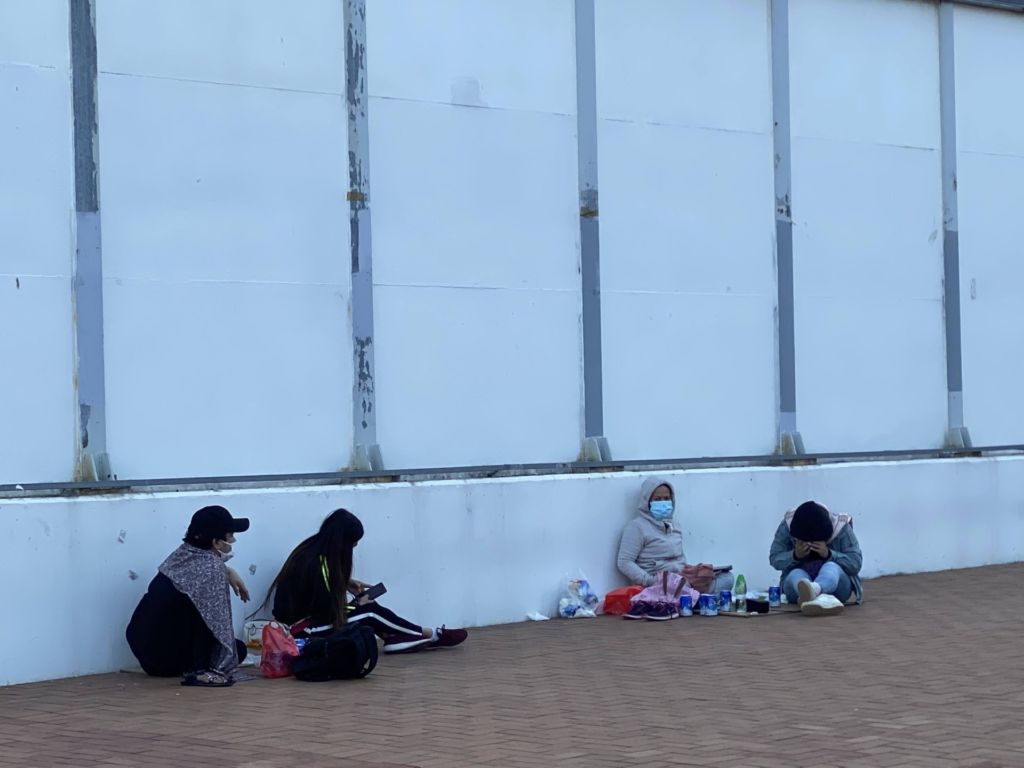
L, a Filipino worker who also wished to be known by just the initial of her first name, said it is necessary for her to go out to take in some fresh air, especially with her room just about a quarter the size of a standard parking lot.
The worker — who was wearing two masks — said she was thankful that her employer is understanding and allows her to go out as long as she takes precautions.
A domestic worker, who preferred not to be named, said there are indeed workers who are “black sheep”, taking their mask off in public places for long periods to eat and smoke.
But she said most abided by the social distancing and mask rules.
J hoped authorities and employers would not discriminate domestic workers because of the actions of this minority, while having double standards when it came to locals breaching COVID restrictions.
“You can see three Hongkongers walking together on the streets — a mother, father and their child. This is okay. Nobody will catch them. Why is it only us,” asked J, referring to the ban on more than two people gathering in public places.
“It’s very unfair,” echoed L. “There are many places with a lot of people, including Hongkongers, like in Wan Chai. Why are [the officers] only here?”
She added many officers often shout at foreign domestic workers.
Sringatin, the chairperson of the Indonesian Migrant Workers’ Union, said at least two Indonesian domestic workers told her they had their contracts terminated by their employers recently because they went out on their day off.
Separately, the chairperson said her union has been handing out food and medication to about 170 Indonesian workers, whose employers have been holding back such resources from them.
“Since the Omicron outbreak, we have received some calls for help from workers who are living in households with COVID-19 cases,” she said.
“They cannot go out because they are positive or close contacts, and they say their employers — who order groceries online — are worried about not having enough food, so they are only given one meal a day and no medicine.”
Sringatin said she is worried that an imminent mass testing program and potential lockdown will make it difficult for them to dispatch food and medication to these workers in need.
